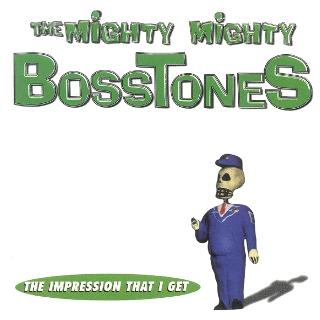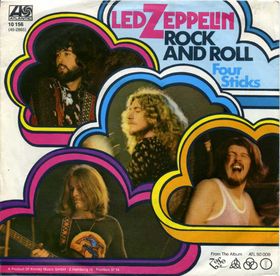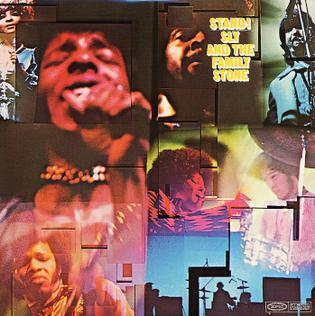Song: "Just Got To Be"
Album: Magic Potion
Year: 2006
CLICK HERE TO LISTEN (will open in new tab)
Though it makes very little sense, it has become a rare occasion for a band to fully realize a sound that is truly authentic, completely free of studio "polish" and production. While many bands attempt this sound, most try to replicate this sound within an overly expensive studio, and the results are almost always obvious. However, there are a few bands, most bred in the punk rock ethos, that have found great success in this area by simply making a lo-fi sound by using a true lo-fi approach. Standing high atop this new wave of bands that purposefully shun the studio glitz in favor of a more pure sound is the punk toned blues rock of the Akron, Ohio duo known as The Black Keys. For nearly a decade, the pair have been proudly carrying the torch for truly talented bands, and their music stands as some of the most exciting and refreshing of their generation. From their early experiments that were nearly psychedelic in sound to their gritty, more hardcore songs, The Black Keys have shown an amazing range in style, and yet the one consistent element that runs throughout is the fact that they are far more talented than a majority of their peers and have a clear understanding of how to write great songs. After "label jumping" for a number of years, the group released their phenomenal debut for their own label in the form of 2006's Magic Potion, and the entire album shows that with every year, they manage to get better at their style of rock music. Though every song on the album is superb, it is the opener, 2006's "Just Got To Be," that way very well be the bands' defining song and quickly shows why they are so superior to other current bands.
With only two players in the band, one might expect a more stripped down sound, and yet The Black Keys prove time and time again that they bring a power and punch that is far beyond other bands with two or three times the number of musicians. It is this ability to bring out so much sonic brilliance that makes their music so fantastic, and "Just Got To Be" is a perfect representation of this idea. Kicking off with feedback from the guitar of Dan Auerbach alongside the seemingly random drumming of Patrick Carney, it is almost as if the duo is warming up before their dive head-first into the songs' deep grooving sound. Truth be told, the quick opening drumming is extremely reminiscent of the late breakdown portion of Led Zeppelin's "Moby Dick," though it is often overlooked due to how briefly it is played. Furthering this connection, the moment in which the pair drop into the more formal musical arrangement is also almost identical to the same moment with "Moby Dick." Yet it is clear that this is more of a respectful nod as opposed to a rip-off, and it only makes "Just Got To Be" a more exciting musical experience. As the song progresses, The Black Keys deploy a brilliantly bluesy feel, and yet there is an edge to the song that is unlike anything else previously recorded. Auerbach's guitar is perfectly toned, and the distorted fuzz evokes the wide-range of influences that are clear in the bands' sound. During the verses, it drops to a more restrained, but sonically superior blues progression, and the way in which they are able to seamlessly transition from the heavier sections to the more sparse arrangements is what makes both The Black Keys and "Just Got To Be" such fantastic musical constructs.
Matching the mood that is set into place by the music, the vocals of Dan Auerbach add a perfect finishing touch to the sound of The Black Keys, and the tone of his voice often matches the sound and mood of his guitar. On "Just Got To Be," there is a bluesy style to Auerbach's singing that is rarely heard within modern music, and once again the feeling of a truly authentic performance is what makes it so fantastic. Throughout "Just Got To Be," Auerbach deploys a fresh, gritty take on the classic blues sound, and although this fusion what rock and roll was based upon, it has rarely been performed as perfectly as one finds here. Working the entire vocal range, it is both in his pitch as well as attitude that the talents of Auerbach's singing are shown to be beyond that of his peers. Further adding to the overall impact of "Just Got To Be," the lyrics that Auerbach sings are unquestionably among the bands' finest, and much like the other aspects of their performance, they go far deeper than most of the other bands of their generation. Taking one of the most uniquely brilliant approaches to the age-old theme of the "evil partner," Auerbach sings of a woman that "...you're gonna be mislead, left fear encounters..." Yet he spins the idea further with the chorus of, "... you just got to be, the best thing for me..." This almost audible grin of the woman being a bad influence but "just what he wanted" is something to which everyone can relate, and it gives "Just Got To Be" an absolutely fantastic feel.
Time and time again, The Black Keys have proven that they are without question one of the most powerful and truly talented bands of their generation. Completely ignoring the style and sound of the modern music scene, the duo are proud to show their influences through their unique style of blues, metal, and psychedelic rock. While many current bands try and bring this lo-fi sound, the truth is, The Black Keys bring a louder and more aggressive style, and yet are able to seem more pure than their peers who try and sound "less produced." This is a testament to the purity behind the bands' musical approach and shows that they are not "trying" to create this sound, it simply "is" who they are as a band. Clearly understanding that their approach works perfectly, the duo rarely deviate from this format, and yet have managed to churn out more quality albums that nearly any other band over the past decade. From the crashing cymbals of Carney to the fantastic tone of Auerbach's guitar to his wonderfully soulful singing, The Black Keys stand as the high-water mark for modern rock bands, as each of their albums continues to prove that there is no substitute for straightforward rock and roll music. Due to the fact that nearly every one of their albums is flawless, it is beyond difficult to choose a "best" song, yet one can easily find everything that makes The Black Keys so superior to their peers within their stunning 2006 single, "Just Got To Be."














